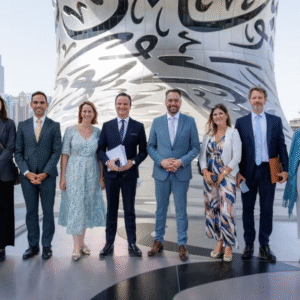Renowned French socialist and stalwart supporter of post-war European integration, Jacques Delors, has passed away at the age of 98, leaving behind a legacy as a key architect of the European Union’s single currency project. His family confirmed his demise, marking the end of an era for a visionary leader who played a pivotal role in shaping the trajectory of a united Europe.
Delors’ illustrious career reached its zenith as he assumed the role of president of the European Commission, the executive body of the European Union, serving an unprecedented three terms from January 1985 to the conclusion of 1994. This span coincided with a transformative period for the emerging union, witnessing rapid changes and laying the groundwork for the EU we know today.
His tenure was marked by impassioned debates on the direction of European integration. Delors, a fervent supporter of an “ever closer union,” found himself at odds with then-Prime Minister of the United Kingdom, Margaret Thatcher. The clash of visions between Delors and Thatcher epitomized the broader tensions within the EU, particularly regarding the decentralization of power to Brussels.
The resilience and commitment of Jacques Delors to the European project were evident in the duration of his leadership, which surpassed that of any previous officeholder. His enduring influence can be seen in the substantial strides made during his tenure, setting the stage for the continued evolution and expansion of the European Union.
Delors’ dedication to the European single currency project, a concept that would eventually materialize as the euro, showcased his commitment to fostering economic unity among member states. The legacy of the euro as a symbol of European economic integration is a testament to Delors’ vision and determination.
The clashes between Delors and Thatcher highlighted the complexities and diverse perspectives within the EU, a theme that persists to this day. Delors’ unwavering advocacy for a closer union and his ability to navigate these challenges contributed significantly to the EU’s development.
As the European Union mourns the loss of one of its founding figures, Jacques Delors’ impact reverberates through the corridors of European history. His legacy serves as a reminder of the tenacity required to build a united Europe and the ongoing pursuit of a shared vision despite ideological differences. The EU stands as a testament to Delors’ enduring legacy, a union that continues to evolve and grapple with the intricate balance of national sovereignty and collective progress.








